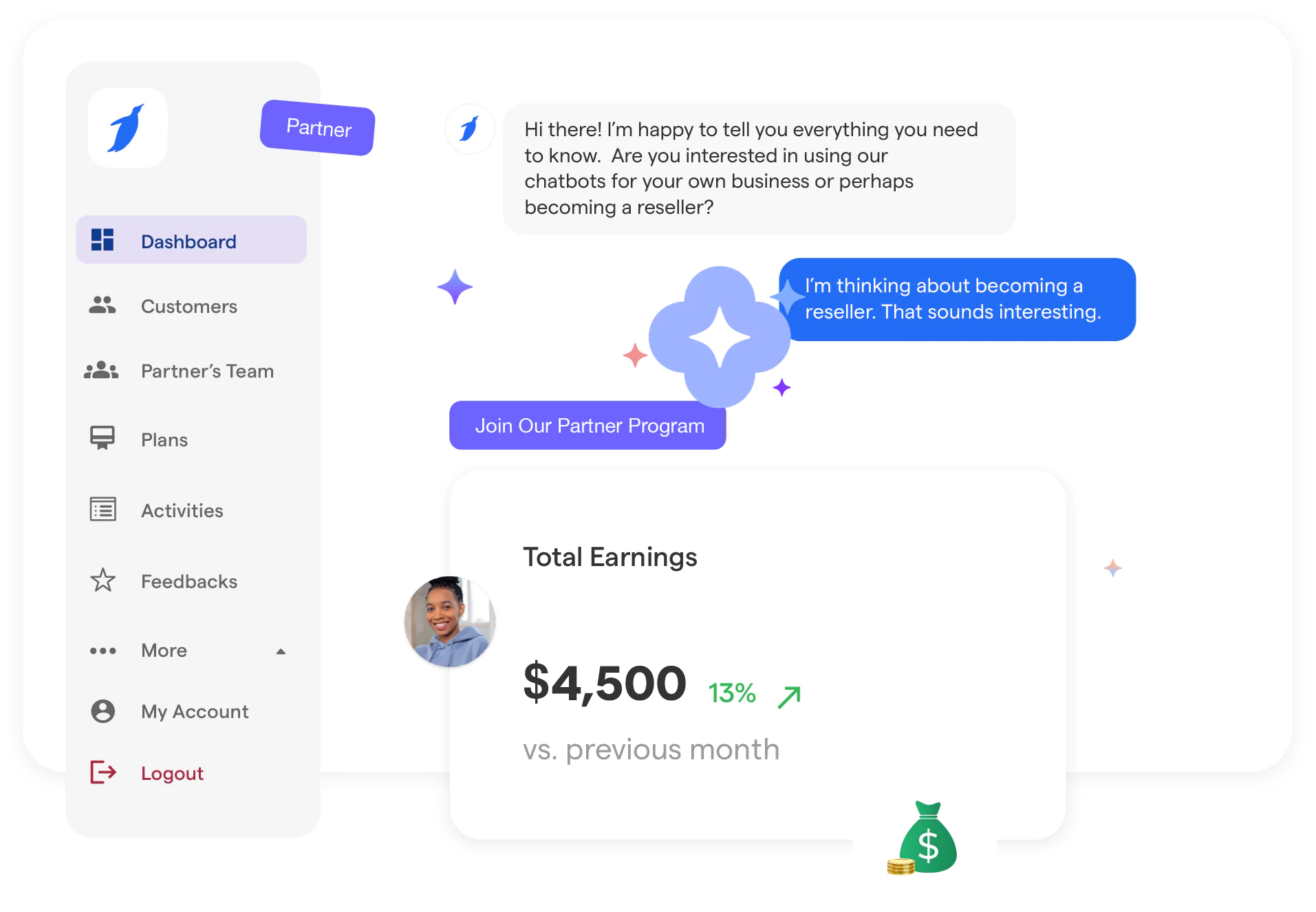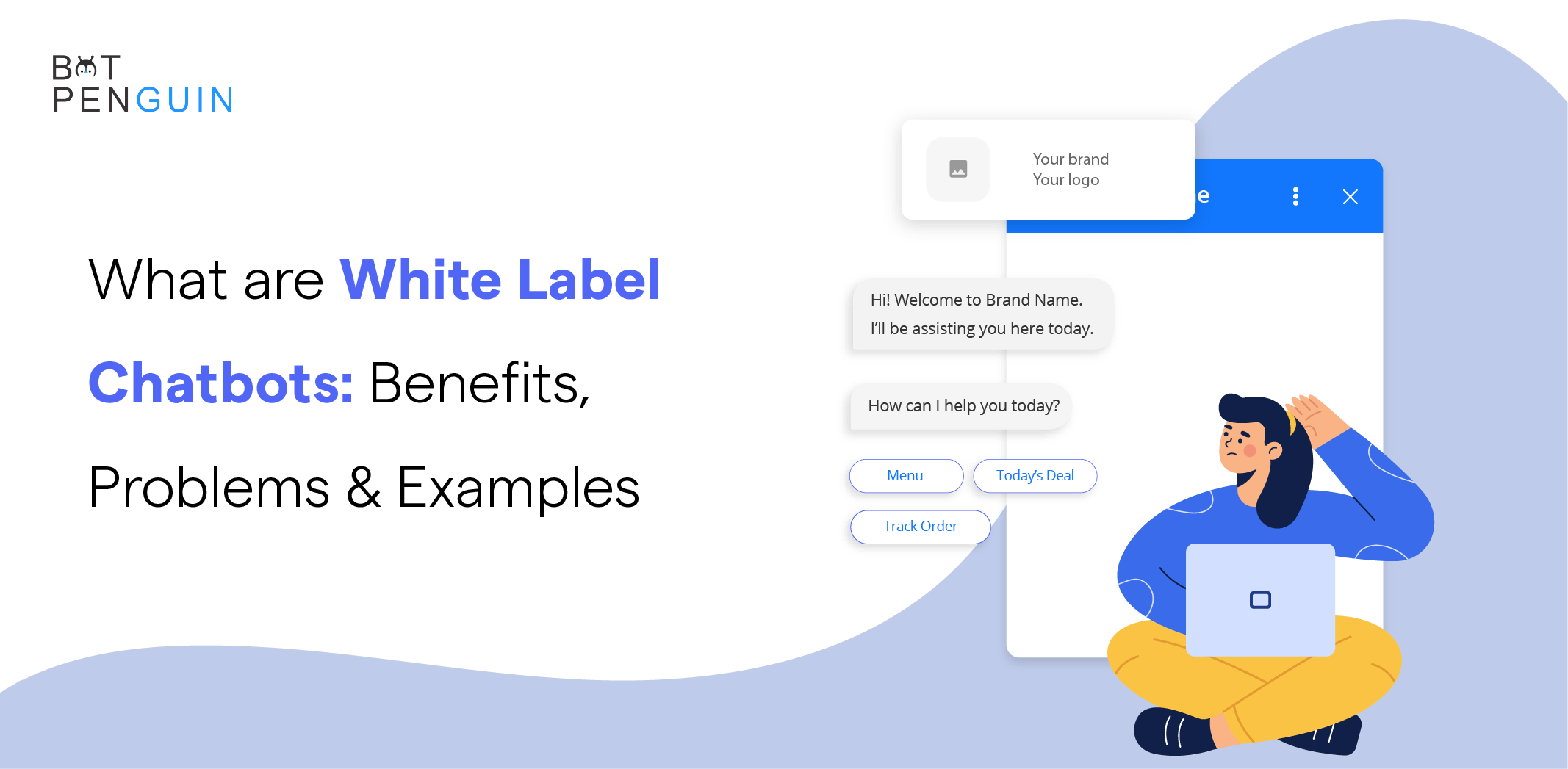Introduction
Are you a business owner looking for new income opportunities? The thriving chatbot reselling sector could be your answer.
This innovative business model benefits you from the soaring demand for chatbot solutions without incurring significant development expenses.
Imagine yourself providing state-of-the-art chatbot applications to numerous clients, catering to various business needs across different industries. From customer service to sales and marketing, chatbots are revolutionizing various sectors, and you could be a pioneer in this transformation.
In this detailed guide, we'll unravel the complex world of chatbot reselling collaborations. Learn about the profit-driving revenue models, such as revenue sharing, subscription-based, and pay-per-use methods. Gain knowledge about pricing strategies, personalization techniques, and ways to grow your user base.
But there's more—we'll also provide methods to tackle everyday obstacles and ultimately succeed in this profitable field. Realize the complete potential of chatbot reselling and establish yourself as a leader in this growing industry.
Plunge in and grasp the chance to create a prosperous business in chatbot reselling. The time is now—read on to embark on this thrilling venture!
How Chatbot Reselling Partnership Works?
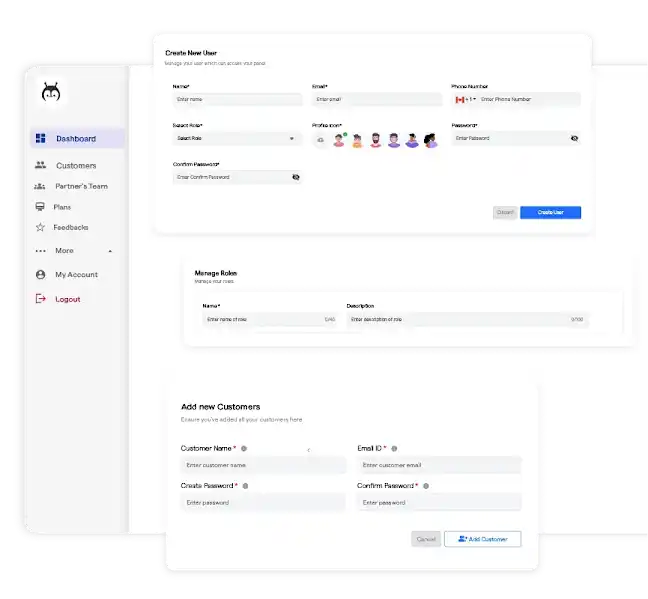
A chatbot reselling partnership is a business model in which a third party sells a chatbot application to multiple clients or businesses.
The chatbot reseller invests in developing a chatbot application that can address specific business needs such as customer service, sales, or marketing.
The reselling partnership model enables the reseller to offer the application to multiple clients who can use it for their particular operations.
Chatbot Reselling
Chatbot reselling is a process where a chatbot developer builds a chatbot application and resells it to different businesses or clients.
The developer can leverage on the features of the chatbot application, making it easy to scale and introduce specific functionalities to meet market demands.
The chatbot reselling partnership model allows developers and resellers to reach a larger audience and offer more robust features tailored to specific business needs.
Benefits of Chatbot Reselling Partnership
The chatbot reselling partnership has several benefits, including:
- Lower development cost: By taking advantage of an existing chatbot application, the reseller can save development costs that would have been incurred if they were to develop their application from scratch.
- Enhanced revenue streams: Through chatbot reselling partnership, developers and resellers can establish a steady source of revenue.
The reseller can leverage the features of the chatbot application to develop multiple revenue streams and scale its business operations.
- Simplified Maintenance: Maintaining and updating the application costs time, effort, and resources. Through the chatbot reselling partnership, the reseller is freed from maintaining the chatbot application, and the developer takes full responsibility.
- Higher profit margins: By selling the application to multiple clients, the reseller can achieve economies of scale, lowering operational costs and increasing profit margins.
- Market Expansion: The reseller can leverage the existing chatbot application's features to address specific business needs in different market segments, thereby reaching more customers across different industries.
Next, we will see the types of revenue models in chatbot reselling partnership.
Types of Revenue Models in Chatbot Reselling
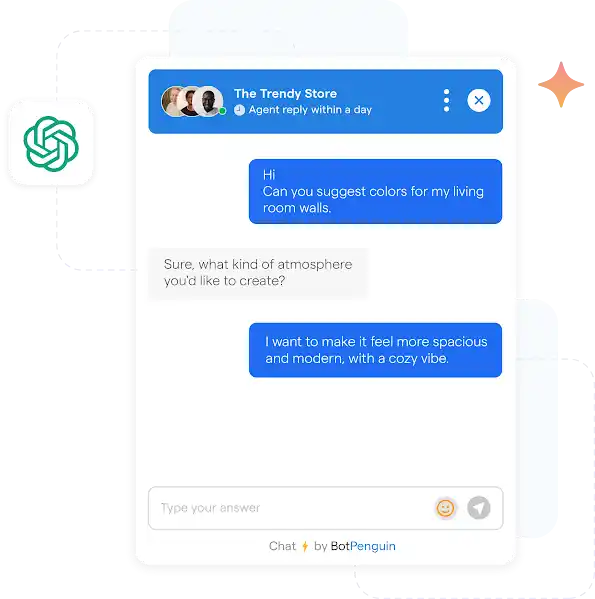
Make money by reselling chatbot apps. This section covers three money making models: revenue sharing, subscriptions, and pay-per-use. See the pros and cons of each.
Find the right fit for your business goals. Understand how the models work to choose wisely. Maximize your earnings potential in the chatbot market.
Revenue Sharing Model
The revenue-sharing model in chatbot reselling involves partners sharing the revenue generated by the chatbot application.
This model typically splits the revenue between the chatbot developer or provider and the reseller. The revenue share percentage can vary depending on the parties' agreement.
The reseller earns a percentage of the revenue from clients using the chatbot application, creating a mutually beneficial arrangement.
Advantages
The advantages are the following:
- Lower financial risk for resellers: Since revenue sharing depends on actual sales, resellers are not required to make significant upfront investments.
- Incentivizes performance: Resellers are motivated to promote and sell the chatbot application to maximize revenue potential.
- Shared risk and reward: Both the developer and reseller share the risks and rewards of the business, fostering a collaborative partnership.
Disadvantages
The disadvantages are the following:
- Revenue dependence: Resellers rely on the chatbot application's success to generate revenue, which market factors could impact.
- Limited control over pricing: Resellers may have limited control over the pricing strategy, which can affect their revenue share.
- Potential conflicts: Disagreements over revenue sharing percentages and distribution can lead to conflicts between parties.
Subscription Model
In the subscription model, clients pay a recurring fee to continuously access the chatbot application's services.
The reseller earns revenue through ongoing subscription payments from clients who subscribe to use the chatbot application.
This model offers a predictable revenue stream for the developer and the reseller, based on the number of clients subscribing to the chatbot application.
Advantages
The advantages are the following:
- Stable revenue stream: The subscription model provides a steady flow of income for the reseller, reducing uncertainty in revenue generation.
- Customer retention: Subscriptions encourage client loyalty and retention, as clients continue to pay for the service regularly.
- Scalability: As the number of subscriptions grows, the revenue potential increases, allowing the business to scale.
Disadvantages
The disadvantages are the following:
- Initial acquisition costs: Acquiring clients to subscribe to the chatbot application may require upfront marketing and promotional efforts.
- Churn rate: High subscription cancellation rates (churn) can impact revenue stability and require ongoing efforts to retain clients.
- Pricing challenges: Determining the optimal subscription pricing can be challenging, affecting the model's attractiveness to potential clients.
Suggested Reading:
7 Best Chatbot Reselling Tactics for Success
Pay Per Use Model
The pay per use model charges clients based on their actual usage of the chatbot application.
Clients pay for the specific features or services they utilize, with pricing based on usage metrics such as the number of interactions or transactions.
The reseller earns revenue based on the clients' usage levels and charges incurred.
Advantages
The advantages are the following:
- Cost efficiency: Clients only pay for their services, making it a cost-effective option for businesses with varying usage needs.
- Transparent pricing: Clients have clarity on what they are paying for, based on their actual usage of the chatbot application.
- Revenue potential: The pay-per-use model offers the potential for scalable revenue generation as usage levels increase.
Disadvantages
The disadvantages are the following:
- Revenue volatility: Fluctuations in client usage patterns can lead to revenue uncertainty for the reseller.
- Client hesitation: Clients may hesitate to use features that incur additional charges, affecting adoption rates.
- Complexity in pricing: Determining the optimal pricing structure based on usage metrics can be challenging and require ongoing evaluation and adjustments.
And luckily, BotPenguin has got all the check boxes marked as ticked, one would look in a chatbot reseller program.
With all the heavy work of chatbot development already done for you, stand a chance to become a leading chatbot reseller by offering chatbot solutions from WhatsApp automation to ChatGPT plugins and much more.
Next, we will see the factors that affect revenue generation in chatbot reselling partnership.
Factors Affecting Revenue Generation in Chatbot Reselling
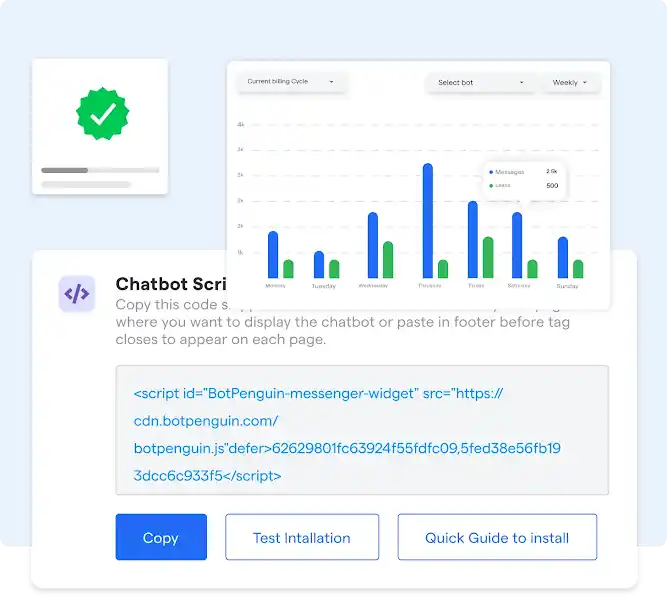
If you're a chatbot reseller, your goal is to maximize revenue. However, achieving this goal is easier said than done.
Several factors can impact your ability to generate revenue, and understanding these factors can help you develop a successful business strategy.
This section will explore the factors affecting revenue generation in chatbot reselling and discuss strategies for maximizing revenue.
Number of Users
One of the most significant factors affecting revenue generation in chatbot reselling is the number of users.
The more users you have, the more revenue you can generate. However, increasing your user base can be challenging. Here are some strategies to help you increase your user base:
Impact of the User Base on Revenue
You can generate more revenue with more users since chatbots generate income based on user interactions.
The more users interact with chatbots, the higher the revenue. Therefore, you must focus on scaling your business and increasing your user base.
Strategies to Increase the User Base
You can implement marketing strategies such as social media campaigns, email marketing, content marketing, and partnerships to increase your user base.
Offering free trials can help attract customers who are on the fence. It's also essential to create engaging chatbots that keep users coming back.
Chatbot Customization
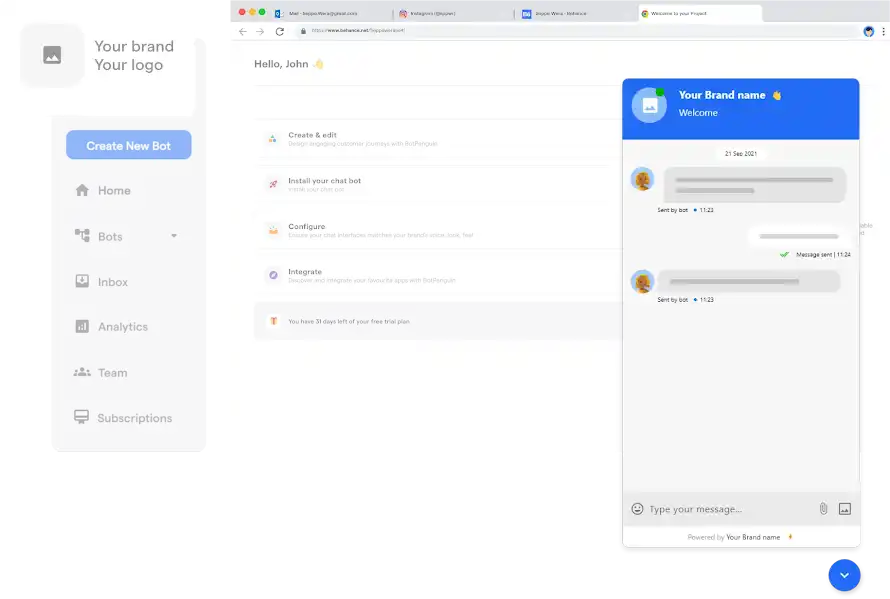
Another factor that affects revenue generation in chatbot reselling is the level of customization offered.
Customization is the process of tailoring chatbots to meet the needs of individual businesses.
The more customized chatbots are, the more revenue they can generate. Here are some ways to effectively customize chatbots:
Importance of Customization in Revenue Generation
Customization directly impacts revenue generation since businesses want chatbots that meet their specific needs and solve their unique problems.
A personalized and tailored chatbot experience will help retain customers and increase revenue.
Techniques to Customize Chatbots Effectively
To effectively customize chatbots, you must consider each customer's unique needs. Look at their industry, target audience, and unique business goals.
Once you understand a customer's specific needs, you can customize the chatbot's functionality, appearance, and tone of voice.
Testing chatbots thoroughly is important to ensure they function correctly and provide the desired results.
Pricing Strategy
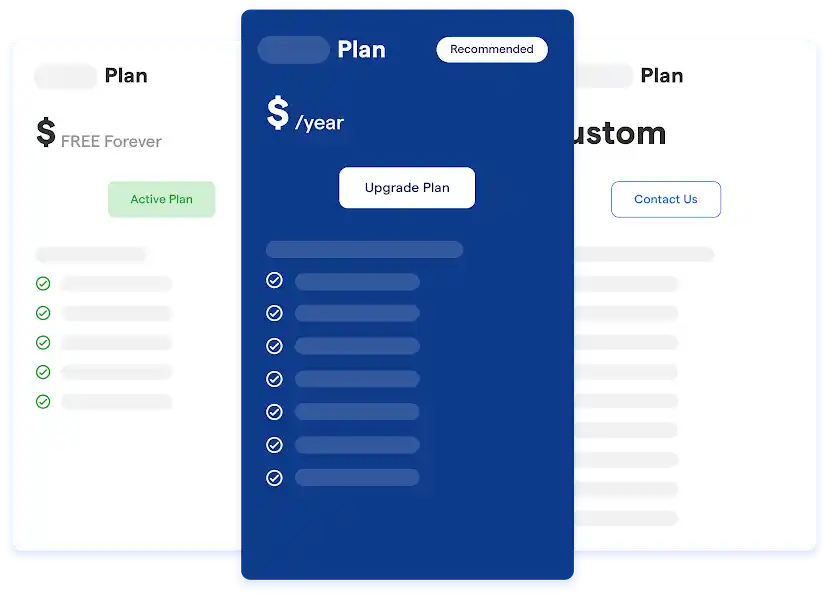
Pricing is a crucial factor in revenue generation for chatbot resellers. A successful pricing strategy requires a deep understanding of customer needs and market trends.
Here are some tips for implementing a successful pricing strategy:
How Pricing Affects Revenue Generation
Pricing has a significant impact on revenue generation. If your pricing is too high, you risk pricing yourself out of the market and losing customers.
If your pricing is low, you can avoid undervaluing your services and lowering your profit margins.
Finding the right balance between competitively pricing services and ensuring profitability is essential to generate revenue consistently.
Suggested Reading:
Don't ruin your chatbot reselling plan: 6 mistakes to avoid
Tips for Implementing a Successful Pricing Strategy
To develop a pricing strategy, you must understand your customers' unique needs and budget constraints.
Conducting market research to understand your competition's pricing and getting customer feedback can help identify a sweet spot.
Consider offering tiered pricing with different levels of customization and feature options to deliver value to businesses with different needs and budgets.
Finally, regularly evaluating your pricing strategy to ensure competitiveness and profitability is essential for long-term success.
Next, we will see the challenges and tips for successful chatbot reselling partnership.
Challenges and Tips for Success in Chatbot Reselling Partnership
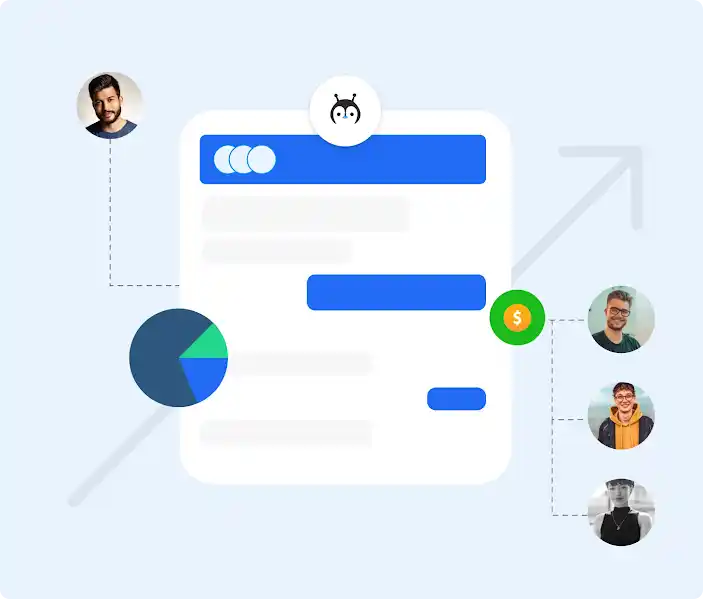
Building a successful chatbot reselling partnership comes with its fair share of challenges.
However, you can overcome these obstacles and thrive in the industry with the right strategies and mindset.
In this section, we'll discuss the common challenges chatbot resellers face and provide tips for overcoming these challenges and finding success.
Common Challenges Faced by Chatbot Resellers
As a chatbot reseller, you may encounter specific challenges that can hinder your progress. It is essential to be aware of these challenges and develop strategies to address them effectively.
Here are two common challenges faced by chatbot resellers:
Lack of Technical Knowledge
Many chatbot resellers come from non-technical backgrounds, which can pose a challenge when selling and supporting chatbot solutions.
It's crucial to have a solid understanding of the underlying technology and address customer questions and technical issues confidently.
Market Competition
The chatbot reselling industry is becoming increasingly competitive, with new resellers entering the market daily.
Competing against established players and differentiating oneself in a saturated market can be a significant challenge.
Tips to Overcome Challenges and Succeed in Chatbot Reselling Partnership
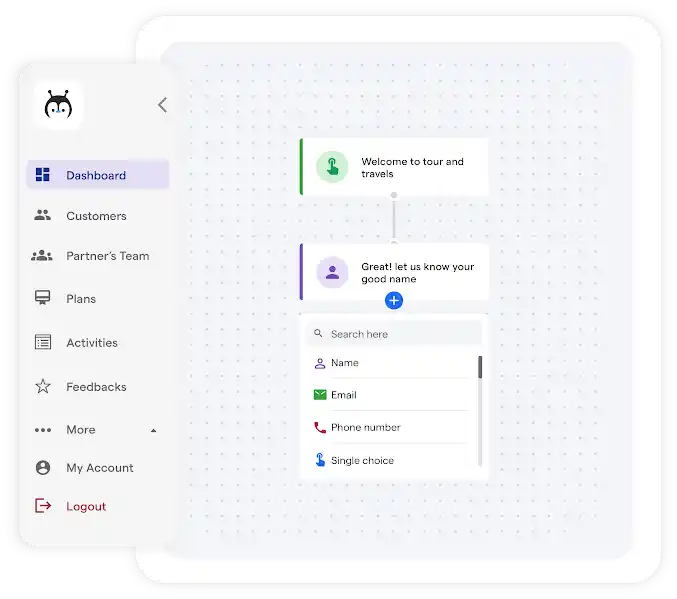
While challenges may arise, there are several tips and strategies you can implement to overcome them and find success in your chatbot reselling partnership.
Here are two tips to help you navigate and thrive in this competitive industry:
Constant Learning and Skill Development
To overcome the challenge of needing more technical knowledge, investing time in constant learning and skill development is crucial.
Stay current with the latest advancements in chatbot technology and industry trends.
Attend webinars, read blogs, and participate in relevant forums to expand your knowledge base. Consider partnering with technical experts to complement your skills and provide comprehensive solutions to your customers.
Differentiating from Competitors
You must differentiate yourself from your competitors to stand out in a crowded market. Develop a unique value proposition that sets you apart.
Consider specializing in a specific industry or niche, enabling you to offer tailored solutions and expertise.
Focus on providing exceptional customer service, personalized solutions, and timely support. Establish strong relationships with your customers based on trust and reliability.
Conclusion
Employing the outlined strategies, you can realize the full extent of chatbot reselling.
Through successful customization and pricing, you can enhance your income sources, draw in more users, and surpass competitors.
Conquer challenges by consistently honing your abilities and distinguishing your offerings.
Are you ready to take on this rewarding opportunity? Use BotPenguin's advanced chatbot solutions to initiate your reselling journey.
Our easy-to-use platform enables you to build, personalize, and launch chatbots tailored to your client's requirements. With solid features, smooth integrations, and unmatched support, BotPenguin is your pathway to chatbot reselling achievement.
Be a part of our expanding community today and capture the opportunities in this flourishing market.
Frequently Asked Questions (FAQs)
How do I choose the right chatbot provider for a reselling partnership?
Consider factors like the provider's technology, reputation, support services, pricing structure, and compatibility with your target market's needs.
What are the common challenges faced in chatbot reselling partnerships?
Challenges may include competition, pricing pressure, technical issues, customer support, and maintaining profitability.
What strategies can I use to maximize revenue in chatbot reselling partnerships?
Strategies may involve offering value-added services, optimizing pricing models, effective marketing, and delivering exceptional customer experiences.
How do I negotiate terms and agreements with chatbot providers for reselling partnerships?
Negotiate terms around revenue sharing, exclusivity, pricing flexibility, technical support, and contractual obligations to ensure a mutually beneficial partnership.
What are the emerging trends in chatbot reselling partnerships?
Trends include AI advancements, industry-specific solutions, integration with other technologies, and demand for personalized chatbot experiences.
How can I differentiate my chatbot reselling business in the market?
Differentiate through specialized expertise, customized solutions, superior customer service, and strategic partnerships with complementary businesses.
What metrics should I track to measure the success of my chatbot reselling partnerships?
To evaluate partnership effectiveness, track metrics such as revenue generated, customer retention rates, sales performance, customer satisfaction, and return on investment (ROI).

